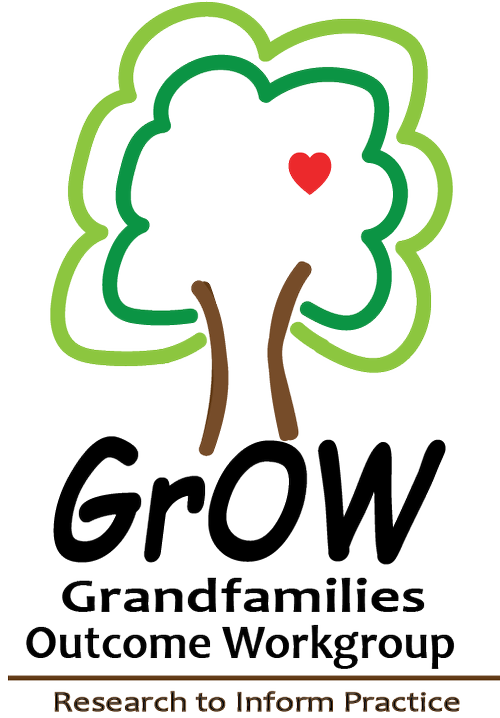The Grandfamilies Outcome Workgroup (GrOW) is a national coalition of stakeholders that works across systems of care in support of kinship families. GrOW intentionally integrates the lived experiences of kinship caregivers in the evaluation methods, tools, and resources it develops and shares.
Our Mission
GrOW’s mission is to emphasize the importance of the application of evaluation tools to identify needs and support best practices in partnership with kinship families.
Our History
The Grandfamilies Outcome Workgroup (GrOW) was created in 2009 as part of a collaborative effort to identify and evaluate outcomes related to programs and interventions for grandparents and other relatives raising children.
The Grandfamily Outcomes Workgroup (GrOW) formed as a result of a roundtable discussion at the 2009 Brookdale Foundation conference in Denver. Madelyn Gordon and Sylvie deToledo of Grandparents as Parents in California presented the roundtable, which was titled “Sustaining Your RAPP.” (“RAPP” or “Relatives As Parents Program” is a Brookdale Foundation program.) Participants recognized that each program faces challenges around sustainability and that the relative caregiving field as a whole can promote sustainability by encouraging the use of evaluation tools and data driven decision-making. The intriguing conversation led Donna Fedus of the Grandparents Raising Grandchildren Program in New Haven, Connecticut to invite several experienced RAPPs to continue the discussion after the conference, and the GrOW coalition formed.
How GrOW Grew
Members have continued to meet regularly via conference call since 2009 to determine ways to enhance the evaluation capacity of relative caregiver programs.
Support groups are the most commonly used intervention with grandparents raising grandchildren; however, very little research has been conducted to demonstrate how effective support groups are for these caregivers. GrOW has identified common goals and objectives of support groups and created the Kinship Support Group Survey to measure the effectiveness of this widely used modality.
Sustainability in its largest sense has been a central theme in GrOW discussions. In an era where programs with an evidence base have a distinct advantage, GrOW members found the lack of assessment among kinship care programs concerning. Currently, each program determines individually how to define, measure, and present program effectiveness. There is little consistency in the field of relative caregiving about the choice of measurement tools and data points to collect in order to deliver quality, cost-effective services, and to be competitive in securing funding.
GrOW operates as a peer group with each member contributing significant expertise gained from years of serving relative caregivers.
Since its inception in 2009, GrOW has created and tested new evaluation tools to measure the impact of programs that serve relative caregivers.


